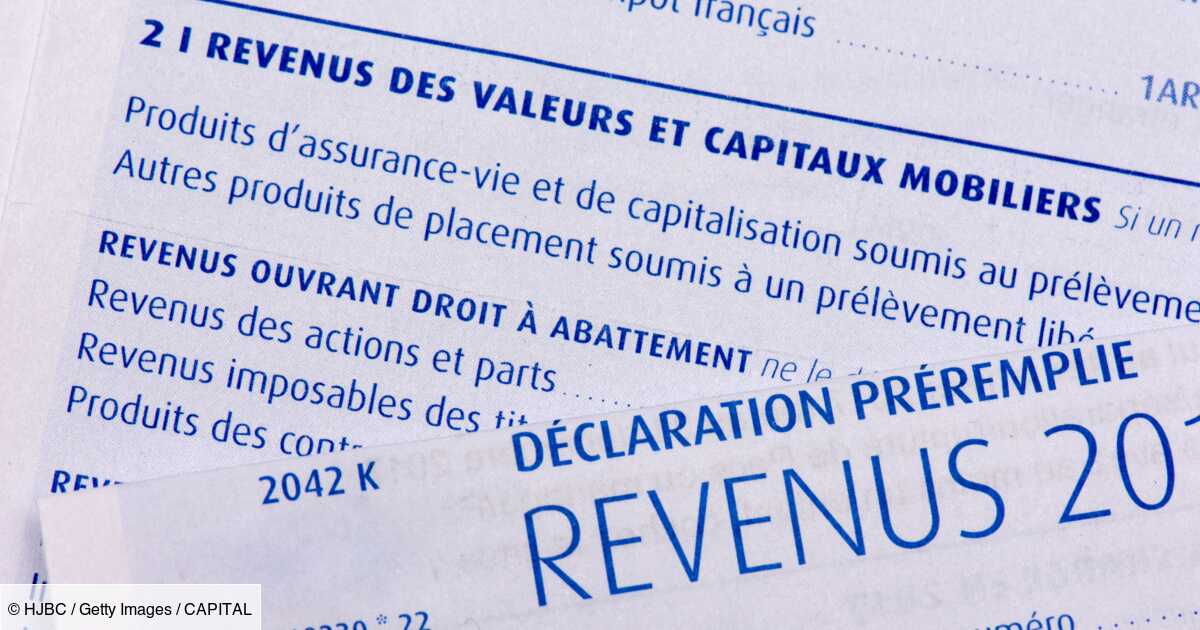Summary
See more
See less
What is the micro-Foncier diet?
Land income: definition
Property income designates the income received by a taxpayer under the Rental of non -furnished real estate. These are therefore the rents collected by the owner of a accommodation, a commercial premises, a land, etc., rental without furniture. Are considered to be property income:
- rents from the rental of empty accommodation (not furnished);
- rents from professional or united commercial premises;
- Revenues from shares of SCPI (civil real estate investment companies) or SCI (real estate companies) not subject to corporate tax.
A tax income tax
As soon as a lessor rented his naked real estate and perceives rents, called “property income”, he must declare these income to the tax administration since they are taxable. There are then two tax revenue tax regimes:
- The Micro-Foncier regime automatically applies to taxpayers who receive an annual gross land income for less than 15,000 euros.
- The reality regime applies automatically to taxpayers who receive an annual gross land income greater than 15,000 euros. It is possible to voluntarily opt for the reality regime.
What are the conditions of the micro-foncier regime?
Taxation of rental income: the ceiling of 15,000 euros
The main condition to benefit from the micro-foncier regime is Do not exceed 15 000 euros of property income (excluding charges) per year. This threshold is global, that is to say that it applies to all the property income received by the tax household, regardless of the number of goods or tenants.
Furthermore, if the owner only rents his rental property for part of the year, the limit of 15,000 euros is not pro -rated.
Real estate concerned
Certain taxpayers or types of goods are excluded from the micro-Foncier regime, even if income is less than 15,000 euros:
- Goods subject to a specific tax regimelike the Besson law, the Robien, Périssol, Borloo old devices, Scellier ZRR, Duflot or Denormandie (for bare rental), the Cosse system in convention with the ANAH.
- The goods classified or located within a particular perimeter: Historic monument or remarkable heritage site (SPR).
- Property not owned in full ownership: in the event of a bare ownership (the bare owner does not receive rent) or detention through a non-transparent company.
- SCPIs, because these are “intermediate” property income subject to the real regime.
How to fix the amount of the rent
What is the interest or the advantage of the micro-foncier, as well as its disadvantages?
Micro-Foncier and Lowering
The micro-foncier regime has two major advantages:
- He gives the right to a flat -rate reduction of 30 % on land income (before ISR and social security contributions). The taxation is therefore only of the remaining 70 % of the rents received.
- It offers declarative obligations simplified which are aimed at “small owners”. Only the amount of rents received is to be declared.
Result: it is an interesting regime for small income, whose charges (property tax, insurance premiums, energy renovation work, unpaid rents, etc.) do not exceed a 30 % ceiling of the amount of rents.
An impossible land deficit
The downside of the micro-foncier regime lies in its lump sum and rigid character. Indeed, the taxpayer cannot attribute its real expenses (work, loan interest, condominium charges, management fees, etc.). It is therefore impossible to generate a land deficit, that is to say a negative result to reduce taxation on overall income.
The 30 % reduction is exclusive: if the actual charges exceed this threshold, the real regime becomes tax more relevant.
The limits of the micro-foncier regime
Thus, the micro-foncier regime does not allow No specific deductionunlike the real regime. Here are the main expenses not taken into account:
- Energy renovation or maintenance work.
- Co -ownership charges or non -recovered rental charges.
- Rental management fees (agency or property administrator).
- Property tax and additional taxes (household waste, etc.).
- Non-occupying owner insurance (PNO).
- Unpaid rents, and associated insurance (GLI).
- Loan interest and bank charges.
Thus, if the charges are important, or in case of work on the property, it is preferable to opt for the real tax regime, which allows them to be fully deduced.
Maprimerenov ‘: beneficiaries, request and amount 2025
What is the difference between micro-foncier and real diet?
Two distinct tax regimes
The micro-foncier is reserved for donors perceiving less than 15 000 Euros of gross rents Annual, with a flat -rate reduction of 30 %, without the possibility of deduction of real charges. The actual diet is automatically applicable beyond 15,000 euros, or on option. It makes it possible to deduce the really supported loads.
Choose the micro-foncier
The micro-foncier is advantageous for “Small owners” whose annual charges are low. It simplifies the declaration and lightens accounting management. For example, if annual charges (excluding loan interest) represent less than 30 % of rents, the micro-foncier regime is often more favorable tax and administratively.
Choose the actual diet
The real regime becomes more advantageous as soon as the real charges exceed 30 % the amount of gross rents. It allows the full deduction of all the expenses linked to the property and the creation of a land deficit (excluding loan interest), attributable to the overall income within the limit of 10,700 euros per year (postponement of the balance on property income of the following ten years).
Real regime: a binding option
The choice of real regime is irrevocable for three years. This means that once the option has been exercised, the taxpayer cannot return to the micro-foncier before three consecutive tax fiscal years. This choice must therefore be anticipated: it is recommended to make a tax simulation to compare the two regimes before deciding.
Auto-entrepreneur taxes: regime, rate and declaration
Is there a simulator to choose between micro-foncier and real?
Several online simulators allow you to compare the micro-furniture scheme and the real scheme to optimize the taxation of your rental income in 2025.
Service-public.fr, the official simulator
The official website of the French administration offers a simulator for Calculate income tax. It is possible to indicate your property income there and choose between the micro-foncier diet or the real regime to see the impact on its taxation. It is particularly useful for obtaining a global estimate of its tax, integrating all income and charges.
Neofe
The Neofa simulator helps estimate the tax on its property income in Comparing the micro-foncier diet and the actual diet. He takes into account the rents received, the deductible charges and the taxpayer’s tax situation. A quick and intuitive tool to anticipate its heritage decisions, which also allows the impact of work or loan interests to be simulated.
Fiduciary company
This simulator makes it possible to determine which tax regime is most suitable for a given situation. By entering its property income and charges, it is possible to obtain an estimate of the tax due according to each regime. It provides a clear encrypted comparison.
How to contact taxes?
How to declare your income (rents) in micro-foncier?
Declaration of the micro-foncier regime
The micro-foncier regime is a simplified diet for the taxation of property income. Indeed, the taxpayer must only declare the gross amount of property income collected during the calendar year on the tax declaration n ° 2042, in box 4BE (frame 4 “property income”). This amount includes all the rents collected during the calendar year.
No proof (charges, work, receipts, etc.) is to be provided within the framework of the micro-foncier, but it is advisable to Keep all documents In case the administration requests it.
Property income taken into account for the calculation
Gross land income takes into account gross income from buildings Whether the taxpayer rents directly or whose enjoyment he reserves, and the gross income share of the real estate civil society of which he is associated, in proportion to his rights in the profits.
Application of the flat -rate reduction
The tax administration then applies a flat -rate reduction of 30 % On the overall sum, which makes it possible to take into account the deductible charges linked to the rented housing. Only the remaining 70 % is added by the tax administration to the other income received by the taxpayer for the calculation of the income tax due.
How to go from micro-foncier to real diet (and vice versa)?
Go from micro-foncier to real diet
The transition from the micro-engine regime to the real regime is possible Voluntary option. To do this, fill and attach the n ° 2044 form during its tax return, which details all deductible charges. The result (profit or land deficit) is then postponed in the planned boxes (4BD 4BD).
This option is irrevocable for three years : This means that it will not be possible to return to the micro-foncier before the expiration of this period.
Return to the micro-Foncier diet
To return to Micro-Foncier, if necessary, two conditions must be met:
- Have respected the three years of engagement linked to the option for the real regime.
- Receive less than 15,000 euros in gross property income per year.
- In this case, just No longer complete the declaration 2044 The following year and simply declare the rents collected in box 4BE of the 2042 declaration.
How to declare your rental income?
What are the differences between empty rental and furnished rental for taxation?
Furnished rental is more flexible tax Thanks to the BIC (industrial commercial profits) regime and the possibility of chatting good, but it involves more active management (furniture, rotation of tenants, etc.). Empty rental offers simpler, more legally stable taxation (three -year renewable lease), but less optimized from a tax point of view.
Non-professional furnished rental (LMNP) or professional (LMP): the micro-bic
Distinction between LMNP and LMP
The LMNP system applies as soon as income from furnished rental do not exceed 23 000 euros per year or do not constitute the main activity of the tax household. Conversely, the LMP status applies automatically if these two conditions are met: revenues above 23,000 euros and higher than other income from the home.
The micro-BIC diet for furnished rentals
Income from furnished rental is BIC category. If rental revenues do not exceed 15,000 euros per year (77,700 euros for revenues of 2024), the lessor can benefit from the micro-BIC regime. This simplified tax system allows you to benefit from a flat -rate reduction of 30 % (50 % for income from 2024), which covers all charges.
>> Our complete investor guide. Why invest in real estate? With what tax advantages at the key? How to get the most out of his rental (s)?
Receive our latest news
Each week, the flagship items to accompany your personal finances.









